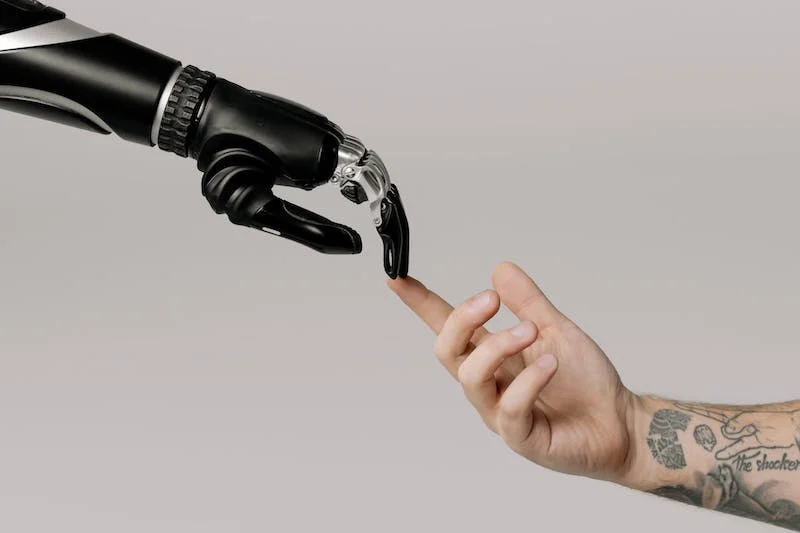Contents
Differences between electric cars and self-driving cars
Electric cars and self-driving cars are two distinct technologies, each with its own set of features and capabilities. Here are the key differences between electric cars and self-driving cars:
- Purpose and Function:
- Electric Cars: Electric cars, also known as electric vehicles (EVs), are primarily designed to run on electricity rather than gasoline or diesel. They use electric motors powered by rechargeable batteries to propel the vehicle.
- Self-Driving Cars: Self-driving cars, also known as autonomous or driverless cars, are designed to navigate and operate without human intervention. They use a combination of sensors, cameras, radar, and software to control the vehicle’s movement.
- Power Source:
- Electric Cars: Electric cars are powered by electricity stored in batteries. They need to be charged through an electrical outlet or a charging station.
- Self-Driving Cars: Self-driving cars can be either electric or powered by traditional internal combustion engines. The key feature related to autonomy is the self-driving technology, not the type of power source.
- Autonomy Level:
- Electric Cars: Electric cars do not inherently possess autonomous driving capabilities. They can be manually driven by a human operator.
- Self-Driving Cars: Self-driving cars have varying levels of autonomy, from Level 0 (no automation) to Level 5 (full automation). Higher-level self-driving cars are capable of driving without human intervention to varying degrees.
- Technology and Sensors:
- Electric Cars: Electric cars may have advanced technology features, such as regenerative braking and battery management systems, but their primary focus is on the propulsion system.
- Self-Driving Cars: Self-driving cars are equipped with a wide array of sensors, including LiDAR, cameras, radar, and ultrasonic sensors, to perceive their surroundings and make real-time decisions.
- Safety and Regulation:
- Electric Cars: Electric cars are subject to standard automotive safety regulations, similar to traditional vehicles, with a focus on electrical safety.
- Self-Driving Cars: Self-driving cars face additional safety and regulatory challenges, as they must comply with both existing vehicle safety regulations and specific autonomous driving laws and standards.
- Market Availability:
- Electric Cars: Electric cars have been commercially available for many years and are widely adopted by consumers.
- Self-Driving Cars: Self-driving cars are still in the development and testing phase in many parts of the world, and their availability for commercial use varies by region and company.
- Environmental Impact:
- Electric Cars: Electric cars are generally more environmentally friendly than their gasoline or diesel counterparts, as they produce zero tailpipe emissions.
- Self-Driving Cars: The environmental impact of self-driving cars depends on their power source (electric or gasoline) and how efficiently they operate, but autonomy itself does not inherently impact environmental concerns.
In summary, electric cars and self-driving cars serve different primary purposes. Electric cars focus on reducing emissions and energy consumption through electric propulsion, while self-driving cars aim to improve safety and convenience by automating the driving process.

Electric vehicle brands and companies
Electric vehicles (EVs) have gained significant popularity in recent years, leading to numerous brands and companies producing electric cars. Please note that the electric vehicle market is rapidly evolving, and new players may have entered the market since then.
- Tesla: Tesla is perhaps the most well-known electric vehicle manufacturer, producing a range of EVs, including the Model S, Model 3, Model X, and Model Y. Tesla is known for its innovative technology and extensive charging infrastructure.
- Nissan: Nissan’s Leaf is one of the most popular and affordable electric cars, and they have been pioneers in the EV space.
- Chevrolet: The Chevrolet Bolt is an affordable electric vehicle known for its long electric range.
- BMW: BMW offers electric models under its “i” sub-brand, such as the BMW i3 and BMW i8.
- Audi: Audi produces electric vehicles like the e-tron and e-tron GT as part of its electrification efforts.
- Hyundai: Hyundai offers electric cars like the Hyundai Kona Electric and the Hyundai Ioniq Electric.
- Kia: Kia produces electric vehicles like the Kia Soul EV and Kia Niro EV.
- Ford: Ford has entered the electric vehicle market with the Mustang Mach-E and the upcoming electric version of the Ford F-150.
- Mercedes-Benz: Mercedes-Benz offers electric cars like the EQC and plans for more electric models in the future.
- Porsche: Porsche has introduced electric models like the Taycan, emphasizing high-performance electric sports cars.
- Rivian: Rivian is an American electric vehicle startup specializing in electric trucks and SUVs, including the R1T pickup truck and the R1S SUV.
- Lucid Motors: Lucid Motors produces luxury electric vehicles, such as the Lucid Air sedan.
- Polestar: Polestar is a subsidiary of Volvo, offering electric cars like the Polestar 2.
- Jaguar: Jaguar has introduced electric models like the I-PACE.
- Volkswagen: Volkswagen is investing heavily in electric mobility and offers models like the ID.3 and ID.4, with more to come.
- Volvo: Volvo is focusing on electric vehicles with models like the XC40 Recharge and plans for fully electric vehicles in the future.
- Fiat: Fiat offers the electric version of the Fiat 500, known as the Fiat 500e.
- Mini: Mini produces electric models like the Mini Cooper SE.
- Tesla (SolarCity): Tesla also produces solar products, energy storage solutions, and solar roof tiles as part of its sustainable energy ecosystem.
- BYD: BYD, a Chinese company, manufactures electric cars and has a significant presence in the electric bus and commercial vehicle market.
- NIO: NIO is a Chinese electric vehicle startup known for its electric SUVs, such as the NIO ES6 and ES8.
- Xpeng Motors: Xpeng Motors, another Chinese company, produces electric cars with a focus on smart and connected technology.
- Canoo: Canoo is an American electric vehicle startup working on electric vans and multi-purpose vehicles.
- Fisker: Fisker is an electric vehicle manufacturer producing models like the Fisker Ocean SUV.
These are just a selection of electric vehicle brands and companies, and the industry is continually evolving, with new entrants and developments occurring frequently. The availability of specific models may vary by region and market.
Self-driving car brands Brands and companies
Self-driving cars, also known as autonomous vehicles, are still in the development and testing phases. Many traditional automakers and technology companies are actively working on autonomous driving technology, but commercial availability varies by region and regulatory approval.
- Waymo (formerly Google Self-Driving Car Project): Waymo, a subsidiary of Alphabet Inc. (Google’s parent company), is one of the leaders in autonomous driving technology. They have developed a fleet of self-driving vehicles and are testing them in various locations.
- Tesla: Tesla, while primarily known for its electric vehicles, has been developing and deploying advanced driver-assistance features, including its “Autopilot” system. They have ambitious plans for fully autonomous driving in the future.
- Cruise Automation: Cruise Automation is a subsidiary of General Motors (GM) and focuses on developing self-driving technology. GM has been actively investing in autonomous vehicles through Cruise.
- Aurora: Aurora is an autonomous vehicle technology company that has partnerships with various automakers, including Toyota and Volvo.
- Argo AI: Argo AI is a company that Ford has invested in to develop autonomous vehicle technology. They are working on self-driving technology for ride-sharing and delivery services.
- Zoox: Amazon acquired Zoox, a self-driving startup, with a focus on autonomous ride-sharing services and electric vehicle design.
- Baidu Apollo: Baidu, often referred to as the “Google of China,” has its Apollo program, which is working on autonomous driving technology and has partnerships with various Chinese automakers.
- Mobileye: Mobileye, an Intel subsidiary, is a leader in advanced driver-assistance systems (ADAS) and is working on self-driving technology for use in vehicles from multiple manufacturers.
- NVIDIA: NVIDIA provides hardware and software solutions for autonomous driving. Their DRIVE platform is used by many automakers and tech companies to develop self-driving systems.
- Pony.ai: Pony.ai is a Chinese autonomous driving startup that focuses on developing technology for self-driving taxis and delivery vehicles.
- Aptiv: Aptiv (formerly known as Delphi Automotive) is a technology company that provides a range of components and systems for autonomous driving.
- Nuro: Nuro is a company that focuses on autonomous delivery vehicles, particularly for last-mile delivery services.
- TuSimple: TuSimple is a company specializing in autonomous trucks for long-haul freight transportation.
- Navya: Navya is known for its autonomous shuttle and small-scale public transportation solutions.
- Cruise (by Amazon): Amazon announced plans to acquire self-driving technology company Cruise, demonstrating the e-commerce giant’s interest in autonomous delivery.
- WeRide: WeRide is a Chinese autonomous driving company working on self-driving taxis and mobility solutions.
Please note that the self-driving car industry is rapidly evolving, and new companies may have emerged, or existing ones may have shifted their focus or formed new partnerships since my last knowledge update. Additionally, the regulatory landscape and progress in autonomous technology may vary by region and country.




